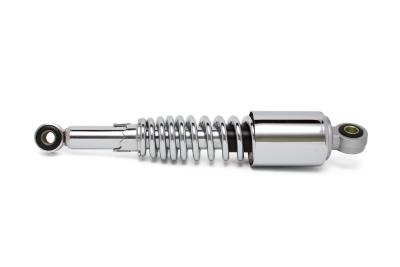Choosing the right set of shocks for your vehicle can mean the difference between a smooth ride and one that leaves you wincing at the thought of the drive home. Both Monroe and Gabriel have a long history of innovation and technology; Choosing which shock to use comes down to personal preference and budget. If you are outfitting your car yourself, make sure you follow the manufacturer's recommendations and purchase a shock that will fit your vehicle properly.

Monroe and Gabriel both offer shocks for cars and light trucks, including specialty items and aftermarket products to help your vehicle's performance on and off the road. Complete, ready-to-install units are available under both brand names. Both companies sell their products on-line or in stores.

Gabriel shocks feature a 14-mm, hardened, chrome-plated piston that is super-finished to increase its ability to withstand the rigors of everyday driving or off-road adventures. The chamber is filled with high-pressure nitrogen gas and uses floating piston technology. Along with a large 46 mm bore, this increases the responsiveness of the piston enhancing its shock absorbing capabilities. Application-tuned valving increases control and the seamless mono-tube design helps keep the overall temperature of the shock cooler eliminating problems caused by heat. As of January 2011 the average price of a Gabriel shock was $30 to $40.

Monroe shocks have a 1/2 inch nitrocarburized piston rod designed for an extended lifespan. The 1 3/16-inch bore provides efficient control. The fully displaced valving automatically adjusts to driving conditions and can be specifically tuned for each application. Like the Gabriel shocks, Monroe features a nitrogen-filled tube; however, Monroe employs a special self-lubricating seal to help retain gas and avoid excessive wear. They also use an all weather fluid for lubrication to ensure a smooth rod reaction. A groove tube technology with a fluon banded piston enhances responsiveness and allows the shock to keep up with changing conditions. The tapered grooves on the tube function like an additional valve to provide a consistent ride. As of January 2011 the average price of a Monroe shock was $40 to $50.
